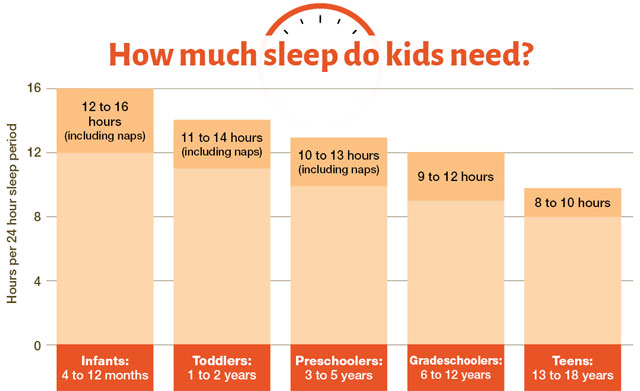
We’re in the triple threat season of cold/flu & RSV. I’m sure by now you’ve seen endless Facebook group posts with the question, “How can I boost my kid’s immune system? They’ve been sick every other week.” or “How can I boost my kid’s immune system so they don’t catch all the things?”. What if I told you that you can’t boost your child’s immune system and that it’s a myth? Would you believe me if I told you that you can SUPPORT your child’s immune system to do what it’s been designed to do naturally? Today, I want to clarify what immune-boosting means and where it comes into play with our health. I’ll also provide some simple strategies to support your child’s immune system all year round, especially during cold/flu & RSV season.
What Does Immune-Boosting Mean?
When you hear the term “immune-boosting,” you’d think that this means you can take something or do something to send your immune system into overdrive. Most people believe immune-boosting techniques will either prevent illness or lessen the duration of a pesky bug. The reality is only the immune system can boost itself, and only when detecting a threat to your health. What does this all mean? The immune system has its own security system with intricate processes to prevent or de-escalate intruders from invading the body with illness or infection. I will only bore you with some science, so I’ll sum it up as the immune system knows when/how to engage and turn off its defenses. This is called the “innate” immune system, which is genetically determined and present from birth. How well it works as one grows depends on various factors. One factor is exposure to a host of bacteria and bugs during the younger years. So, it’s beyond ordinary if your child is constantly sick after starting daycare or elementary school after being home with you. They are being exposed to new bugs and viruses everyday. Don’t worry, their bodies build up defenses and memory for those bugs, so their immune system can defend itself better if exposed again. Other factors that determine immune system health include gut health, lifestyle factors, nutrition, and vitamin and mineral deficiencies.
Why Can’t We Boost Our Immune System?
This may be shocking to hear from an integrative health and nutritional professional, but no supplement will boost anyone’s immune system. This is important to clarify because the wellness industry will have parents spending loads of money on supplements and elixirs for their “immune-boosting” properties. You’ll find yourself in a financial hole very quickly, all while not addressing the root causes of why your child may be more prone to infection and illness, aside from medical/clinical reasons, of course. Honestly, in this economy, who would want to be in that position?

So what can you do that won’t break the bank but keep your child as healthy as possible within their average level? You can support their immune system and overall health through lifestyle, nutrition, and wellness practices.
How To Support Your Child’s Immune System Effectively
I first tell parents to take their children for their annual check-ups. Ask for a complete workup to be done. This is usually done through labs, blood work, urine analysis, etc, to check immune health status and vitamin and nutritional deficiencies.
Next, make sure your child is getting adequate sleep. While working in education, I was shocked to hear some of my students’ bedtimes and wake-up times. Many were in bed by 10-11 p.m. and waking at 5:30 a.m. – 6 a.m. for an 8 1/2 hour school day. It was no wonder many of them would crash by 10 a.m. Here’s a chart with a full breakdown for reference of hours needed by age:

Another tip everyone can benefit from is taking shoes off before entering the home. Take them off outside your entry point, not inside the house. I remember seeing a video on what our walking shoes are exposed to when we pound the pavement daily. So many bacterial strains responsible for intestinal, blood, respiratory, and wound infections are on most people’s shoes. When these shoes enter the home, even if removed at your doorway, the bacteria rests on your doormat or floor area and can easily be trekked into your house without you realizing it. If your kids play on the floor or if you have pets, this can escalate quickly to a game of ping pong with infections among family members.

The one tip our family swears by is bathing or showering immediately upon returning home from school. Aside from feeling refreshing to wash off your day, skin and clothing can harbor bacteria, viruses, and germs. Common cold and flu viruses can remain on the skin more than 1 hour after the first incident of exposure. Showering or bathing upon returning home can minimize the risk of infection but also the spread of germs to others.

While the risk of transmission through textiles/fabrics is somewhat low for cold/flu, viruses that cause diarrhea can survive for weeks. Your child’s clothes can be especially germy. Their clothes pick up germs from unexpected places like car seats, school buses, classroom chairs, cellphones, tablets, toys, sports equipment, shopping carts, etc. So, wash their clothes separately at a water temperature of 140 F (hot cycle). This degree can kill certain strains of viruses and bacteria.

The last tip would be to ensure your child has a nutrient-dense diet and supplement nutrition gaps where needed. Foods rich in fiber, vitamins D, A, C, and B-complex, and minerals such as iron and magnesium support optimal immune health. Fruits, vegetables, lean meats, fish, sprouted grains, and legumes can provide all the above. You don’t want to supplement blindly as this can lead to overloading the body with certain vitamins and minerals. This circles back to my first point of working with your child’s pediatrician to determine vitamin/mineral levels beforehand.
Suppose your child has sensory issues or is neurodivergent with food aversions like my kids? In that case, you really want to meet them where they are at and incorporate new foods outside of their safe foods slowly and intentionally. Each child is different, so a plan must be tailored to their health needs, food preferences, and family budget. Working with your provider and nutrition professional would be the best way to get a foundation for a sound and sustainable plan for your child.

I hope this post clarified some things about immune health and that you can utilize these tips to keep your child(ren) healthy through cold, flu, and RSV season in a proactive way.
Be Well,
Stephanie